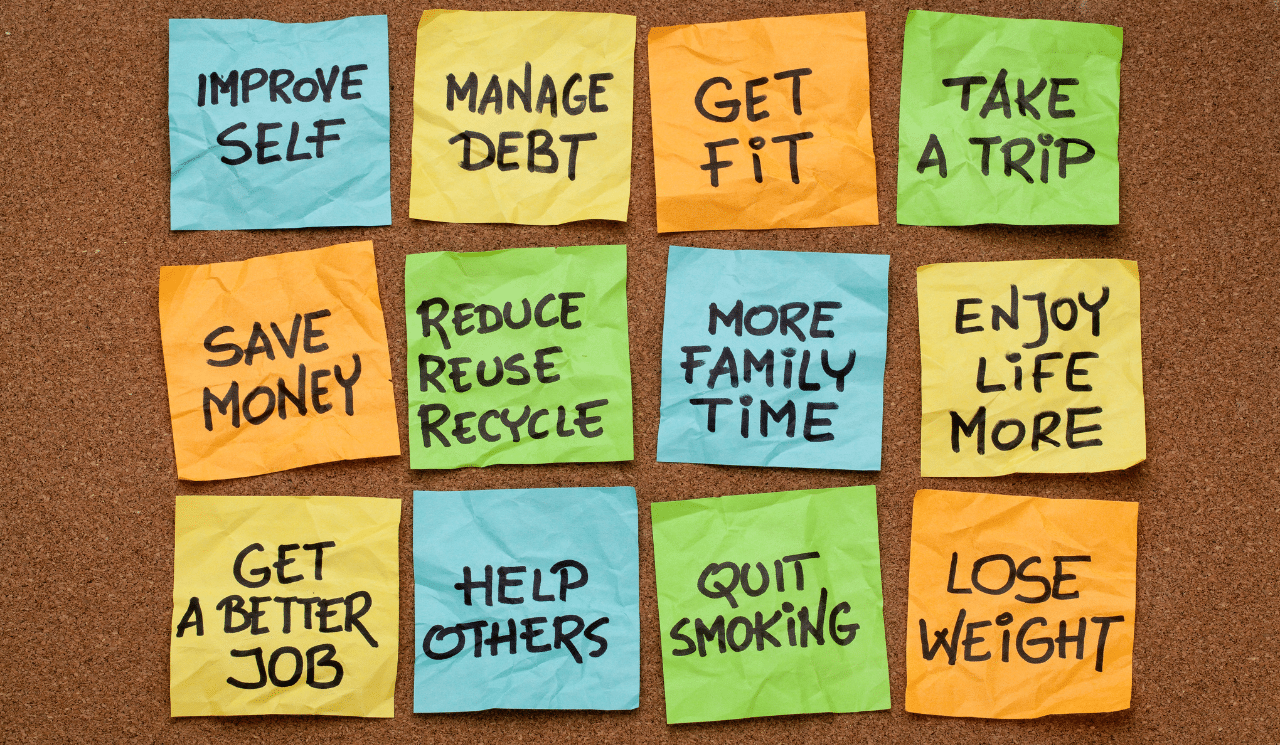It’s that time of year again, when people around the world set their New Year’s resolutions with hopes of a fresh start and a better year ahead. We all know that making New Year’s resolutions is easy, but actually sticking to them is another story altogether. In fact, studies show that up to 80% of people fail to achieve their New Year’s resolutions. So why do so many of us struggle to stick to our goals?
One of the main reasons that people fail their New Year’s resolutions is that they set themselves unrealistic expectations. It’s easy to get swept up in the excitement of a new year and make grandiose plans for self-improvement, but when those plans are unrealistic, we’re setting ourselves up for failure. For example, setting a goal to lose 20kg in a month is unrealistic and can lead to frustration and disappointment.
Another reason that many people fail their resolutions is that they’re too vague. For example, saying you want to “be healthier” is a good intention, but it’s not specific enough to be achievable. Instead, set specific and measurable goals, such as “I will go to the gym three times a week”, “I will eat five servings of fruits and vegetables every day”, or “I will declutter my home for the new year“.
In addition, many people struggle to stick to their New Year’s resolutions because they try to make too many changes at once. When we try to change too much too quickly, it becomes overwhelming and unsustainable. Instead, focus on one or two specific goals at a time and work on those until they become habits before adding in more.

Another common reason for failure is the lack of planning and preparation. If your goal is to eat healthier, for example, you’ll need to plan ahead and make sure you have healthy food options available. If you don’t, you may find yourself reaching for convenience foods, and your resolution will quickly fall by the wayside.
It’s also important to have accountability when it comes to sticking to your New Year’s resolutions. Share your goals with family and friends, or find a support group, so that you have people who can hold you accountable and offer support when you need it. If support and well-being are at the top of your list for 2023, my other recent blog; 12 wellbeing new year resolutions may also be a useful read.
Another pitfall is that people often forget why they made their resolutions in the first place. It’s important to regularly remind yourself of your “why” and the benefits you’ll experience when you achieve your goals. This will help you stay motivated and on track.
Finally, many people fail their New Year’s resolutions because they give up too quickly. Change takes time, and setbacks are to be expected. Don’t beat yourself up if you slip up or don’t make progress as quickly as you’d like. Instead, celebrate the small victories along the way, and keep pushing forward.
In conclusion, making New Year’s resolutions is a great way to start the year off with a positive mindset, but setting yourself up for success takes planning, preparation, and realistic goals. Don’t let the fear of failure hold you back, and don’t give up too quickly. With the right mindset and a little bit of perseverance, you can achieve your New Year’s resolutions and make 2023 your best year yet.





